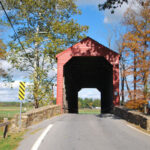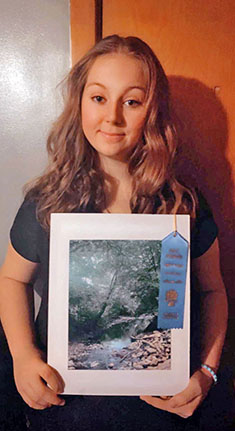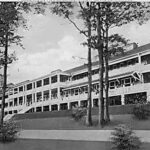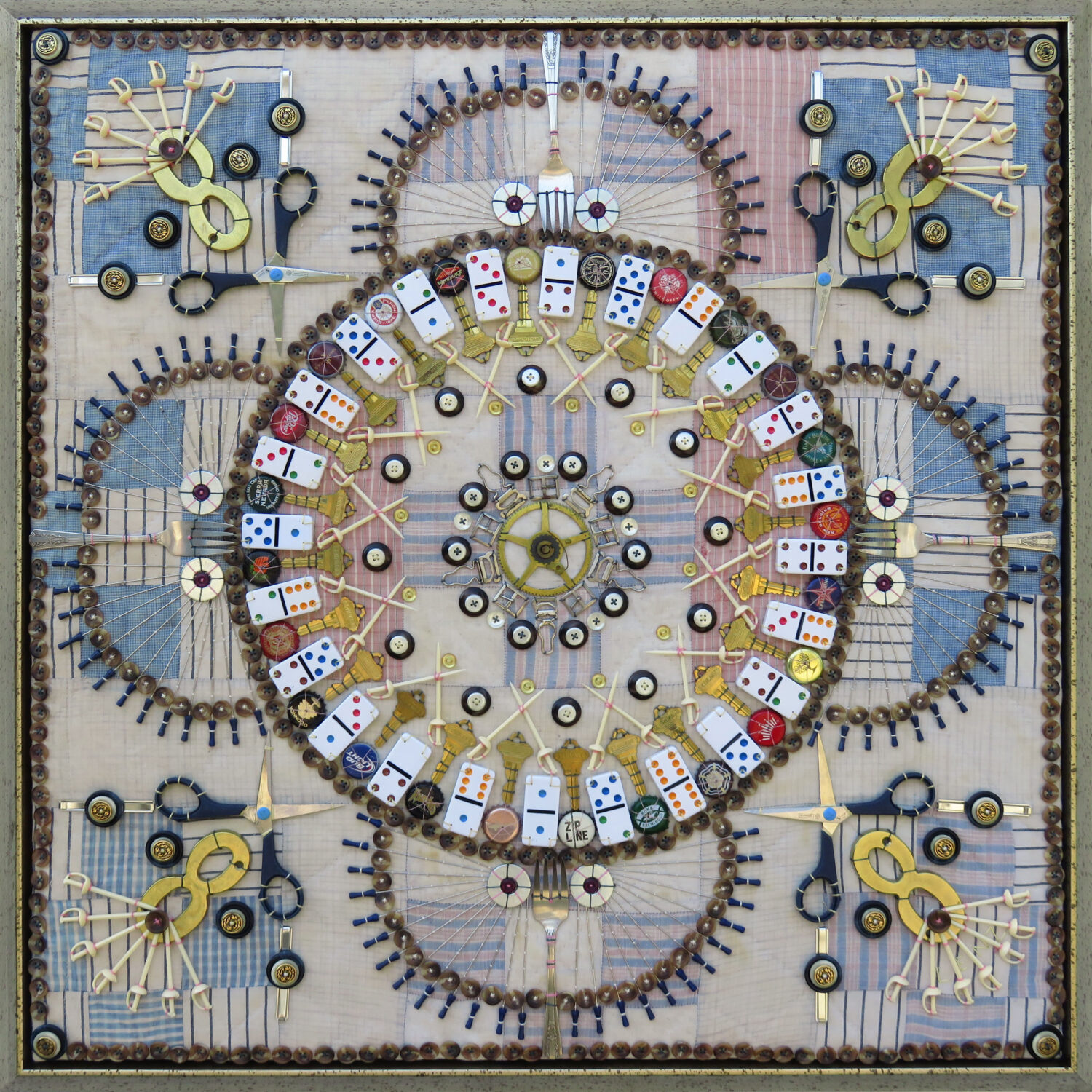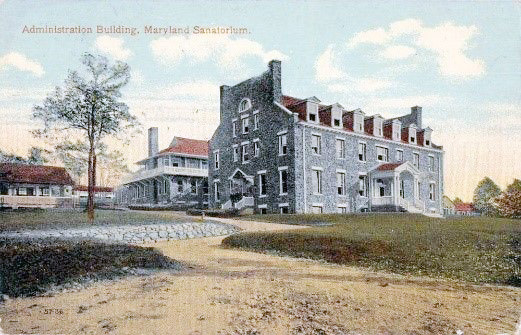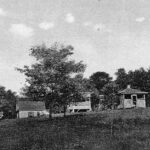written by James Rada, Jr
A serial fiction story for your enjoyment
5: Thomas or George?
Jessica Weikert might think Thomas Hamilton was a hobo who had jumped off the Western Maryland Railroad train as it passed through Thurmont, but she had to admit he was a good worker on her family’s farm. He hadn’t been lying when he said he knew about farming. He kept the equipment in good repair and, most times, better than new. He had even introduced her father to some new concepts that she had never heard of before, like no-till farming. Her father was skeptical about most of them, but Jessica understood the points that Thomas made and saw the merit in them.
Thomas and her father got along well together. They talked farming during the day’s meals and played chess on the front porch at night. Sometimes, they would argue about both, but they were more like loud disagreements.
Her father definitely liked Thomas better than George Kirkpatrick, although he was very supportive of her engagement to George. He should be. He was the one who had set them up. She suspected he hoped to get better prices at the Kirkpatrick’s hardware store once she was married to George.
“He’s a good match for you,” John Weikert had told her after George had asked for John’s permission to marry Jessica.
“But you don’t like him,” Jessica had said.
“I don’t hate him either.”
“Then why are you okay with me marrying him?”
“Because I want you to have a good life, and I think George will provide it for you.”
But George didn’t make Jessica laugh. He didn’t make her heart beat faster. He was polite and handsome, and he was considered a very eligible bachelor. Jessica’s friends considered her very lucky. When Jessica tried to picture herself 20 or 30 years into a marriage with him though, she didn’t see herself on a farm with fields of crops ripening under a blue sky. She didn’t see George walking with her along the rows of corn to see how they were maturing and making sure they were healthy. She saw herself sitting behind a counter, pushing buttons on a cash register or stocking shelves in a store cut off from the land she loved.
Jessica walked into the barn and saw Thomas bent over a blade from the harvester, sharpening it. He worked hard, even when he didn’t have to.
“Why do you do that?” Jessica asked him.
Thomas looked up and brushed his brown hair out of his eyes. “It needs to be done. I don’t mind. It keeps my mind occupied.”
“Why do you need your mind occupied?”
He shrugged. “I’ve got some things I need to figure out.”
“Like what?”
Thomas set his whetstone to the side and wiped the sweat from his forehead with the back of his arm.
“I thought I knew what my future was going to be. It seemed all set, and then it all changed in an instant. Now, I’ve got to figure out what I want to do. My future is no longer certain, so I have to ask myself, what do I want to make it?”
Jessica nodded slowly. “I can understand that.”
“Really? I thought your future was planned out. You’re getting married, right? That’s what your father said.”
“It doesn’t mean it was the future I wanted or planned.”
“Is someone making you get married? You’re not…” He glanced at her belly.
When Jessica realized what he was implying, she blushed and punched him in the shoulder. “Of course not!”
“Then if you accepted the proposal, why isn’t it the future you wanted? You made the choice.”
“I wonder if it’s the right choice.”
Thomas rolled his eyes. “Well, if you break up with him, do it in person. Don’t text him.”
“Text?”
Thomas shook his head. “Nevermind. It’s not important. So, what is the future you want?”
No one had ever asked Jessica what she wanted. Everyone just assumed she would be happy with a good match. Sure, she had enjoyed dating George, but she hadn’t ever fallen in love with him. Her mother said that would come with time as long as they were well-suited. Jessica didn’t want to have to wait for it to happen years from now. Being well-suited was no guarantee of future love.
“I wanted to take over this farm. I enjoy farming. I enjoy seeing things grow. I enjoy knowing that this farm not only feeds my family, but dozens, maybe hundreds, of other families. That’s satisfying.”
Thomas nodded. “It is, but it’s not an easy life.”
“I know that. I’ve grown up on a farm.”
“Most people would want an easy life. I love farming, but sometimes even I wish life could be easier.”
She thought about that. “I think most people want a happy life, and they think if their lives were easy, they would be happy. I’m happy now, despite it being hard. Maybe I need the challenge.”
Thomas smiled. “A true farmer.”
“You’re mocking me.”
Thomas held up his hands. “No, I’m just stating a fact.”
“What about you? What will you do when the harvest ends?” Jessica asked.
He shrugged. “I don’t know. I hadn’t planned on being here.”
Her father was impressed with Thomas’s knowledge. He knew equipment and how to improve its performance. He had interesting ideas about how to increase the farm yields without even tilling the soil.
He enjoyed the work. She would watch him singing in the fields, and sometimes, he would encourage her to join in with him. She would, when she recognized the songs. It helped the work go faster.
However, there were other times when he would leave the farm. At first, she wondered if he had just up and left, but he was always back for work in the mornings.
Then, one day, she had followed him. He had walked out to the covered bridge at Loys Station, where she had first seen him. He would stand at one end of the bridge, staring across it. Sometimes, he would walk across it and back a few times. Each time he emerged on one side, he would look around and back the way he had come.
Jessica didn’t understand it all. Whatever his fascination with the bridge was, it didn’t interfere with his work.
One day, they were working in the field when Thomas stopped for lunch. Instead of going to the house, though, he laid a blanket on the grass and lay on his back. He ate his sandwich as he lay on the blanket.
Jessica walked over. “What are you doing?”
“We spend so much time looking at the land, I wanted to spend a little of it looking at the sky and think about my future.”
“Does it help?”
“It does. The sky is like a blue chalkboard and the clouds are white smears of chalk across it because someone used one of those felt erasers to wipe it off. But it’s a clean slate that I can imagine my future on.”
Jessica looked at the sky. She would love to see her future written in the sky. A message from God telling her what to do.
She lay down on the blanket next to Thomas and stared at the sky. “So how do you make your future appear?”
“It’s not a crystal ball. It’s just when you stare at the blank space, your mind fills it with images. If you’re thinking about your future, those images will sometimes be about your future, almost like a waking dream.”
Jessica stared at the blue above her and wondered where she would be in five years. Would it be a store or the farm? She saw herself on the farm, but it wasn’t with George.
At some point, she had reached over and grabbed Thomas’s hand, not clutching at it, just holding it gently. She also realized that he hadn’t pulled his hand away. Not in real life, not in the vision she saw in the sky.

